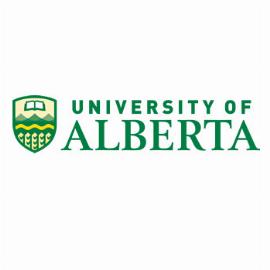Canada has been considered as the land of exceptional opportunities, especially when it comes to education. Being considered as one of the best countries in the world for higher education, Canada houses some of the best colleges and universities in the world. Many international students choose to study and work in Canada given high academic quality with affordable tuition fees in Canada.
So, if you are thinking of moving to a foreign country for your higher studies, you can definitely consider working and study in Canada. Until August 2019, Canada experienced almost 70,000 international students studying at all levels in the country. This figure surely explains why Canada is very popular among international students.
>Here, we will guide you on why you should choose to study and work in Canada
Table Of Content:
- Why Choose Canada?
- Reasons To Study Abroad In Canada
- Understanding Canada’s Education System
- Cost of Studying in Canada for International Students
- Scholarship In Canada For Nepalese Students
- Everything You Need To Know About Canada Student Visa
- Work in Canada – Facts you Need to Know
- What are the Advantages of Working in Canada?
- Do you have any questions ( FAQ)
Why Choose Canada?

Thousands of students apply for various colleges and universities in Canada every year. The primary reason behind this is the quality of education the country provides at very affordable tuition fees. Also, the country welcomes students from all cultures and diversities from around the world. Apart from the best colleges and universities, international students are interested to study and work in Canada also because of its favorable weather conditions and beautiful cities you can visit during your stay in Canada.
Also, the country is considered to be one of the safest places for international students. Here we will provide you some reasons why you should study abroad in Canada.
Various Reasons To Study Abroad In Canada
Quality Education

As a student in Canada, you’ll experience the world-class quality education provided by some of the best colleges and universities in Canada. The degrees obtained from colleges and universities in Canada are recognized all around the world. Also, the education system in Canada highly encourages cross-disciplinary studies and the development of transferable skills (e.g., critical thinking, teamwork, and communications) and uses cutting-edge technology and digital media.
Affordable Price
Another best thing about studying in Canada is that you can get this quality education at very affordable tuition fees. For an international student, the average tuition fee was approximately USD 20,000 per year in the year 2018/19. This means a total of US$60,000 for a three-year degree program and $80,000 for four years of study. Similarly, colleges and universities in Canada also provide various scholarships to international students.
Safety
As per the statistics provided by Numbeo, Canada stands to be one of the safest destinations for international students. This is proven by the fact that the safety index (62.42) of Canada, is much higher than the safety indices of other popular studies abroad destinations such as the US (49.99), UK (57.9), and Australia (57.94). Also, students studying in Canada also claim that the country has a very safe environment for students.
Understanding Canada’s Education System
Education in Canada is recognized as one of the best education systems in the world. The education system in Canada encompasses both publicly-funded and private schools, including community colleges/ technical institutes, career colleges, language schools, secondary schools, summer camps, universities, and university colleges. However, you won’t experience the same education system across Canada as there are significant differences between the education systems of the different provinces. This is because each province in Canada set their own education system.
Pre-Bachelors Level

If you are thinking of pursuing your Pre-Bachelors degree in Canada, then you should understand that Pre-Bachelors, degrees are also known as foundation degrees, prepare future students with practical knowledge for a chosen academic discipline and help them integrate into university life. Some colleges or universities in Canada also require you to undertake a Pre-Bachelors degree in order to meet the undergraduate degree admission requirements. Some of the Pre-Bachelors courses can be pre-med courses, pre-nursing programs, pre-law degrees, pre economics studies, finance preparation courses, business foundation degrees, etc.
Bachelors Level
Students pursuing their bachelor’s levels are recognized as undergraduates in Canada. In order to be eligible for a Bachelors’s degree, one needs to have successfully completed his/her secondary level. If you are thinking of moving to Canada for your Bachelor’s degree, you should note that Bachelor’s degrees in Canada normally require three or four years of full-time study. Some of the most popular courses for Bachelors in Canada are Information Technology, Engineering, Business Management, Pharmacy Technician, and Hospitality Management.
Post Graduate Diplomas
Canada offers a wide range of Post Graduate Diploma Programmes that are recognized all over the world. The cost of the Post Graduate Diploma in Canada is very low compared to other countries. Post Graduate Diploma, also known as the Graduate Diploma, is pursued by the students who have completed their undergraduate studies. The length of the Post Graduate Diploma is one to two years. Some of the most popular courses for Post Graduate Diploma are Business Management, Hospitality Management, Health Science, Science and Engineering, and Information Technology.
Masters Level
A masters’ level degree in Canada is a 1-2 year postgraduate program that offers an academic or a professional degree. Students pursuing a Masters’s course from top Canadian universities are awarded the qualification of Masters of Science (MSc) or Masters of Arts (MA). Apart from these, students also have options for specialist master’s degrees such as Master of Fine Arts (MFA), Master of Engineering (MEng), Master of Business Administration (MBA), etc. Top universities in Canada offer various master’s programs through its 96+ public universities in Canada and 15,000+ study programs.
PhD
Universities in Canada are also very well renowned for their Ph.D. degrees. The country itself and the universities in Canada offer a wealth of research opportunities to help students expand their expertise. This is proven by the fact that more than a third of the country’s overall research is conducted at Canadian universities. Ph.D. courses in Canada are about four to six years long.
Cost Of Studying In Canada For International Students
Studying in a foreign land will definitely cost more than the cost of studying in your home country. This is especially because you’ll be paying in a foreign currency. However, compared to other countries, studying abroad in Canada is considered to be less expensive. Studying in a foreign country will include many other costs rather than just tuition fees. Here we will discuss factors that need to be included in your cost of studying in Canada.

Tuition Fees
Colleges and universities in Canada are very well known for their affordable fee structures. However, the tuition fees in Canada depends on the college and university and the program/course you choose. In general, the tuition fees for studying in colleges or universities in Canada ranges approximately between CAD 7,000 to CAD 29,000 per year. If you are looking for a low-cost course, you can go to subjects like humanities, education, arts, etc.
But if you are not concerned about your budget, you can go for courses like medicine, engineering, etc. The average cost of a master’s in Canada for international students was around CAD 7056 in the academic year 2019-20. And, the average tuition fees for undergraduate international students in Canada for the academic year 2019/20 was CA$29714 (~US$22,500) per year.
Cost Of Living
While budgeting for your cost of living, you need to consider various expenses such as food, transportation, accommodation, communication, etc. While applying for a Canadian student visa, international students need to prove to the Canadian government they have adequate money to match the financial needs to study and live in Canada. The average monthly cost of living in Canada for international students is usually between 600 and 800 CA$ for food and other daily expenses, excluding accommodation.
Health Coverage
Before moving to Canada for your higher studies, you need to fully understand Canada’s health care system. All international students studying in Canada need to have medical insurance coverage. You surely wouldn’t want to get into medical issues when you are in a foreign land and end up paying thousands of dollars.
Students Visa Application Charge
While traveling to a foreign country for studies, international students need to apply for a student visa. It is also known as a study permit, which is required for a designated learning institution (DLI). The cost for a student visa application in Canada is CAD150.
Scholarship In Canada For Nepalese Students

The Government of Canada along with various colleges/universities in Canada provide various scholarships in Canada for Nepalese students. Scholarships in Canada for Nepalese students are non-repayable financial rewards, which are granted to students with outstanding academic achievement. It should also be noted that scholarships for international students are very limited, highly competitive, and provided mostly for the postgraduate level. You can also find various scholarship opportunities like scholarships in Canada for bachelor’s, scholarships in Canada for masters, MBBS in Canada on scholarship, Ph.D. scholarship in Canada, etc.
1. Quebec Provincial Government Scholarship
The Quebec Provincial Government Scholarship is provided to international students in Canada. If you are looking forward to studying in Canada with a scholarship, you’ll need to fulfill the following criteria:

- You should be an international student studying in Quebec.
- Financial assistance is available to students studying at a master’s level or above.
- Each application is assessed on its own merit.
2. Canadian Commonwealth Scholarship and Fellowship Plan
The Canadian Commonwealth Scholarship and Fellowship Plan are designed to enable students to pursue programs of advanced study and research at the Master and Ph.D. level in Commonwealth countries other than their own. The award comprises travel, living allowance, and all compulsory tuition fees. The Canadian Commonwealth Scholarship Program is facilitated through student exchange agreements between Canadian and regional institutions.

These student exchange agreements are created between universities for graduate students. Scholarship recipients remain registered as full-time students in their home institution during this exchange. Graduate Students Exchanges (GSEP) are hosted by Canadian institutions for a period of five or six months and provide up to $10,000 to cover transportation, living, and other related expenses during the student’s stay in Canada.
3. Ontario Trillium Scholarship
The Ontario Trillium Scholarships (OTS) program is an important initiative to attract top international students to Ontario for Ph.D. studies. The Ontario Trillium Scholarship is provided to graduate students in a wide variety of disciplines. To be eligible for this scholarship, international students must accept an offer from a university in Ontario and obtain a valid student permit (visa). This scholarship for international students is valued at $40,000 per year renewable for up to 4 years and will begin concurrently with the start of the recipient’s Ph.D. program. To Be Eligible to Hold the Award, the applicant must:

- Have received a valid temporary resident visa as a member of the student class under the Immigration and Refugee Protection Act (Canada) by the start date of the Ph.D. program
- Be present and registered full-time in the Ph.D. program at Western by the start date of the award and for its full duration
- Not have concurrently accepted a scholarship or fellowship from the Social Sciences and Humanities Research Council (SSHRC), the Natural Sciences and Engineering Research Council (NSERC), or the Canadian Institutes of Health Research (CIHR), or be in receipt of an Ontario Graduate Scholarship (OGS) or a Queen Elizabeth II – Graduate Scholarship in Science and Technology (QEII-GSST)
- Maintain satisfactory progress in the program which will be verified by the recipient’s completion of an annual progress report in conjunction with his/her supervisor
4. University of Alberta Scholarships
The University of Alberta Scholarship is provided to international students based on academic merit and financial requirements. The UAlberta scholarships are available in the form of:
- General UG Entrance Scholarships
- Athletics Scholarships
- Country-Specific Scholarships
- Sponsored Student Scholarships

An international student can apply for the University of Alberta Scholarship if they are enrolling for Bachelors, Masters, and Doctoral degrees. But, students applying for Bachelors’s scholarships will not have to submit any additional scholarship application as they will be evaluated based on their applications for admission to the University of Alberta. In the year 2017, the UAlberta provided a total scholarship worth 87 million CAD to 17,130 domestic and international bachelor students.
Everything You Need To Know About Canada Student Visa
You will obviously need a Canadian student visa to live and study in Canada at Primary, Secondary, and Tertiary-level education in either a vocational course or a professional capacity. But if you want to work and live in Canada after completing your studies, you’ll need to obtain a working visa and finally a permanent residency in Canada.
Canada Study Permit
After getting admission to a college/university, you’ll need to apply for a Canada Study Permit and a Temporary Resident Visa (TRV). Most foreign nationals need a study permit to study in Canada. With a study permit, you’ll be allowed to study in Canada. But, you’ll need a TRV to enter Canada. So, just obtaining a Canada study permit does not allow you to enter Canada. The length of your study permit will be equivalent to the length of your study program, plus an extra 90 days. The extra 90 days is provided so that international students can prepare to leave Canada or apply to extend your stay.
Depending on your study permit you can also work on-campus or off-campus in Canada.
Electronic Travel Authorization (eTA)
An eTA is a digital travel authorization that serves as the replacement to the visa for Canada. In order to enter Canada with your study permit, you need to have a visitor visa or an Electronic Travel Authorization (eTA) document.
Application Process for eTA:
- Have your passport and debit or credit card ready
- It is best to apply online. Since the online form cannot be saved, have all the information ready.
- Pay $7 CAD for your eTA right after you complete the form.
- Then, you’ll receive emails regarding approval and confirmation of your eTA application.
Temporary Resident Visa (TRV)
While a study permit allows you to study in Canada, the TRV allows you to enter Canada. Your TRV will be issued to you automatically once your study permit application is approved. When your study permit or work permit has been approved, you will be asked to submit your passport to the Visa Office so that the TRV (a counterfoil) can be placed inside your passport.
Then, you’ll finally be applying for a Canadian student visa. The very first step is to send your student visa application online through Citizenship and Immigration Canada (CIC)’s website. You can also apply offline though. Then, you need to submit your letter of acceptance that you’ve received from your college/university and proof of financial resources required to support your studies in Canada. other documents to be submitted are a police report mentioning that you have no criminal record to date and a medical report that states you are in good health and fit to travel and study abroad in Canada.
Work in Canada – Facts You Need To Know
International students in Canada can work on or off-campus if their study visa/permit allows them to do so. Working while studying in Canada is strictly prohibited if you don’t have a legal work permit. The Canadian job market provides both full-time and part-time jobs for students in Canada. Working “On-campus” means you can work at all the buildings on your school/campus premise. If your school has more than one campus, you may only work at the campus where you’re studying.

But, if you’re working as a teaching or research assistant and if your work is related to a research grant, you can work at other locations rather than the campus you are studying. Other locations might include places like a library, hospital, or research facility associated with your school. This can be outside your campus premise too.You can work on your school campus, without a work permit, if:
- You are a full-time post-secondary student at a:
- public post-secondary schools, such as a college or university, or CEGEP in Quebec.
- private college-level school in Quebec that operates under the same rules as public schools, and is at least 50% funded by government grants, or
- Canadian private schools that can legally award degrees under provincial law.
- You have a valid study permit, and
- You have a Social Insurance Number (SIN).
An international student studying in Canada can also work off-campus given that he/she fulfills the criteria mentioned by the government of Canada. Here are the criteria for working off-campus:

- You should have a valid study permit that allows you to work off-campus
- You should be a full-time student at a college/university. Or, you should be enrolled in a post-secondary academic, vocational, or professional training program, OR secondary-level vocational training program (For Quebec only)
- Your study program should be at least 6 months long and lead to a degree, diploma, or certificate
- You should have a Social Insurance Number (SIN)
During regular school semesters, you can get part-time jobs in Canada for up to 20 hours a week. And, during scheduled breaks like summer and winter breaks, you can work full-time. If your program doesn’t have scheduled academic breaks, you can’t work more than 20 hours per week.
1. There’s a Need in Canada for Educated People
Employers in Canada are in continuous search of recent graduates from universities, colleges, and schools who are interested to work and live in Canada. For this, Canada provides a wide range of immigration options such as the Provincial Nominee Program. These programs aim to help skilled foreign workers to work in Canada
2. Jobs According to Your Studies
It is very easy to find jobs according to your field of study in Canada. This is why the connection between studies and careers is seen to be very close in Canada. Researches have shown that 93% of recent graduates find a job in their chosen field of study. Programs such as the Post Graduate Work Permit (PGWP) in Canada helps eligible graduates who have completed their tertiary education at a Designated Learning Institution (DLI) to work in Canada after graduation for up to 3 years.
3. High Demand for Tech Jobs
With more than 40,000 companies in the Information and Communication Technologies (ICT) sector, Canada provides a wide range of job opportunities for tech graduates. This demand for tech jobs has resulted in tech-specific courses in British Columbia and Ontario.
4. Different Paycheck System
Unlike other countries, companies in Canada pay their employees on a bimonthly basis. This means the employees receive their paychecks on a twice a month basis.
5. Short Lunch Breaks
Lunch breaks in Canada are just 30 minutes long. Whereas, lunch breaks in most of the countries are one hour long. The lunch break is broken up into two shorter 15 minutes breaks that are taken throughout the day. This is done in order to allow the employees to get up, stretch your legs, and have a bit of a walkabout or a cup of coffee with your colleagues.
What are the Advantages of Working in Canada?
Along with the facts about working in Canada, here are some of the advantages of working in Canada:
- Employment Insurance
If you work in Canada, you can enjoy the benefits of employment insurance. The benefits of employment insurance include facilitation to find jobs, benefits to the family, benefits if you are incapable to work due to sickness, benefits for self-employed people, benefits to fishers, and benefits to employee’s baby’s health, education, security, and many more.
- Regular Benefits
Depending on your eligibility, you’ll be entitled to regular benefits if you lose your jobs without any of your own faults and if you are capable to work but are not getting any jobs.
- Family Benefits
Being employed in Canada will also let you enjoy the benefits while you are pregnant or recently given birth, have adopted a child, or are caring for a newborn.
- Parental and Maternity Leaves
Employers in Canada also provide sufficient paternity and maternity leaves for their employees who are expecting a child or have recently given birth to one or caring for a newborn or have adopted a child, you are given sufficient leaves.
- Child Care Benefits
If your child has a registered birth certificate and have applied for the benefits that the Government of Canada provides, then your child can enjoy these benefits:
- You can open a savings account for your child’s further education after high school
- The tax-free monthly payment for assistance with the cost of raising the children below the age of 18
- Child healthcare benefit
- Child disability benefit
Do you have any questions ( FAQ)
Why is Canada a great place to live and work?
Being ranked as the second-best country in the world, Canada is also considered a great place to live and work. Working in Canada allows you to enjoy many benefits as mentioned in the section above.
Is it a Good Idea to study and work in Canada for Nepalese students?
It is definitely a very good idea for Nepalese students to study and work in Canada. This is supported by its quality education at affordable tuition fees. Also, you can apply for a work permit and ultimately permanent residency in Canada after completion of your studies.
Is it difficult to study in Canada?
Studying in Canada is equally as enjoyable as it might be difficult. Courses in Canada are based on research techniques. So, while studying in Canada, you’ll find yourself involved in various research-oriented activities.
What kind of a country is Canada for international students?
Canada is a country that welcomes international students from all over the world. Thus, the country makes plans and policies feasible for international students. Also, Canada has been ranked as one of the safest countries in the world for international students.
All this information must have made you familiar with the environment to study and work in Canada. At CIC Education Hub, we understand how important and crucial it is to handle a student’s career. We work towards achieving the best for every student. We know the importance of correct, proper, and genuine guidance and here at CIC Education, we respect that. Our work is not only to admit students to colleges and universities in Canada but also to ensure that they are choosing and taking up decisions that are going to boost their careers.
